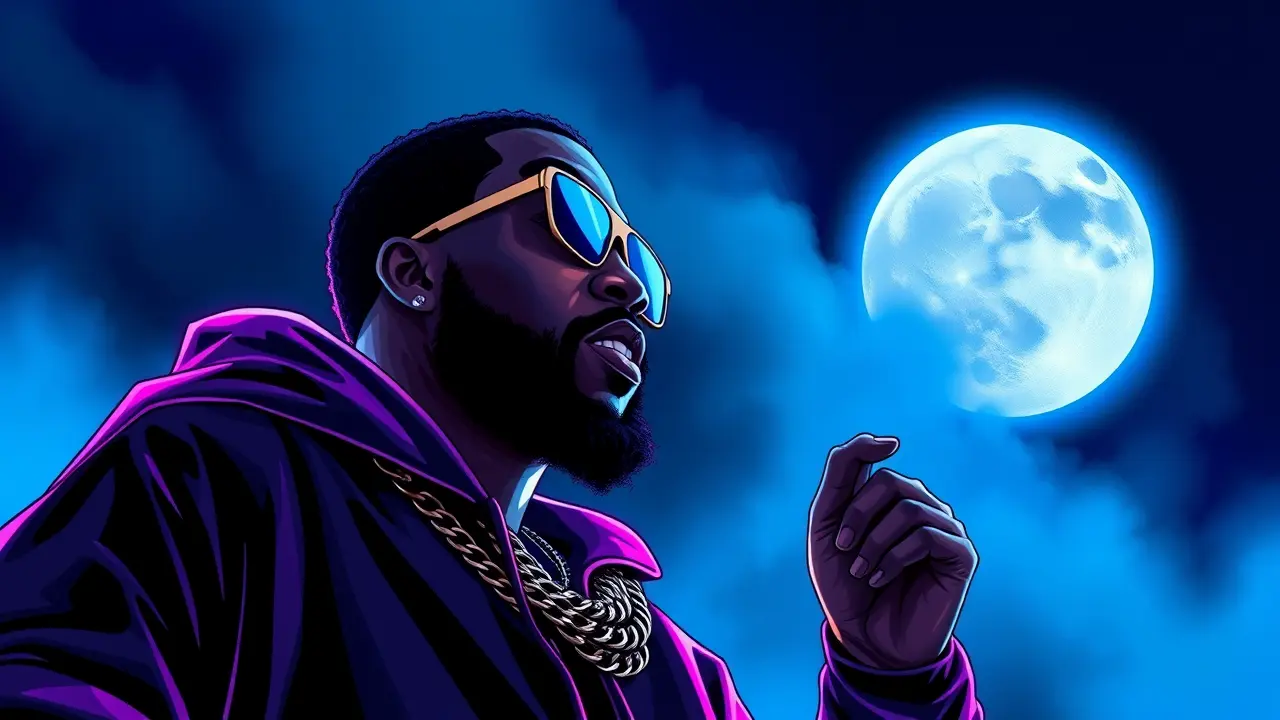Gucci Mane Opens Up About Schizophrenia Battle
The public persona of Gucci Mane, the East Atlanta rapper whose career has been a rollercoaster of prolific output and public turmoil, was for years a character many thought they understood—the unhinged genius, the trap music pioneer whose lengthy, chaotic Twitter rants and relentless studio marathons were simply part of his enigmatic brand, a performance of 'Gucci being Gucci' that masked a far more harrowing private reality. We are now far removed from that era of unchecked mania, a period he and his wife, Keyshia Ka’oir, have courageously reframed not as artistic eccentricity but as a brutal alchemy of immense stress, unaddressed mental health woes, and self-medication through drugs that left him profoundly unhinged and uneasy, a man trapped within a narrative he didn't control.What the world witnessed as mere eccentricity was, in truth, the external manifestation of a fierce internal battle with schizophrenia, a diagnosis that provides a sobering new lens through which to view his past behavior, from his notorious 2013 incident involving an alleged assault to his subsequent periods of incarceration, which can now be interpreted not as simple criminality but as episodes within a larger, untreated health crisis. This revelation, shared intimately with the public, does more than just update a celebrity biography; it pierces the thick veil of stigma that still surrounds severe mental illness, particularly within the Black community and the hyper-masculine world of hip-hop, where vulnerability is often perceived as a fatal weakness.Gucci’s journey from the depths of his condition to his current state of stability and sobriety is a testament to the transformative power of a robust support system, with Keyshia Ka’oir emerging as a pivotal figure whose steadfast presence provided the safety net he desperately needed, challenging the toxic narrative that a strong woman enabling a struggling man is a sign of foolishness rather than profound strength and strategic love. His story echoes the painful, yet ultimately redemptive, arcs of other artists who have wrestled with similar demons, from the late Scott Mescudi, better known as Kid Cudi, who publicly checked himself into rehab for depression and suicidal urges, to the legendary DMX, whose very public struggles with addiction were inextricably linked to deep-seated trauma and mental health challenges, illustrating a recurring, often tragic theme in the music industry where immense pressure and past pain collide.The conversation Gucci and Keyshia are initiating moves beyond the tabloid headline and into a crucial dialogue about diagnosis, treatment, and the possibility of redemption, forcing us to reconsider how we contextualize the 'bad behavior' of public figures and whether our collective response should be one of condemnation or, where appropriate, compassion and a push toward professional help. It raises complex questions about agency and accountability—how do we balance the understanding that a disease influenced his actions with the necessity for personal responsibility, a tension that many families grappling with mental illness navigate daily behind closed doors? For his fans, this new understanding reframes his entire discography; the paranoid aggression of his earlier mixtapes and the focused clarity of his post-prison albums like 'Mr.Davis' and 'Woptober II' can now be heard as audio diaries charting his internal weather, from the storm to the calm. Ultimately, Gucci Mane’s openness is an act of profound bravery, a dismantling of his own myth to offer a raw, human story that has the potential to save lives by showing that even from the darkest and most chaotic chapters, a path toward management, peace, and a new, healthier version of success is possible, not through sheer will alone, but through the courage to seek help and the grace of unconditional support.
GL
GlobeTrotter234 hours ago
it's interesting how this story of public struggle and private healing is so universal we see the same pressures on artists here in europe and the conversation about mental health in hyper-masculine spaces is happening everywhere just look at the uk drill scene
0
CO
CoffeeJunkie425 hours ago
wow this really puts his whole story in a different light tbh, makes you think about how quick we are to judge
0
QU
QuietThinker7 hours ago
that reframes his entire story tbh powerful to just own it like that
0
© 2025 Outpoll Service LTD. All rights reserved.
